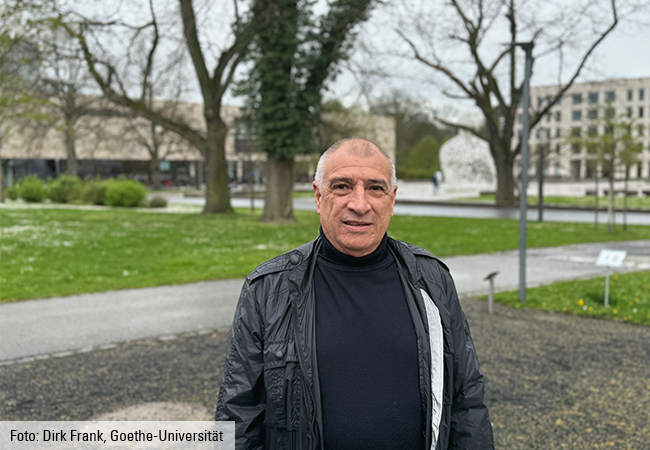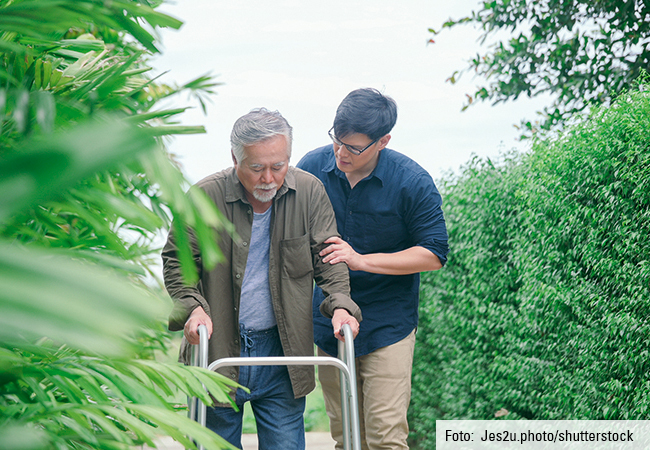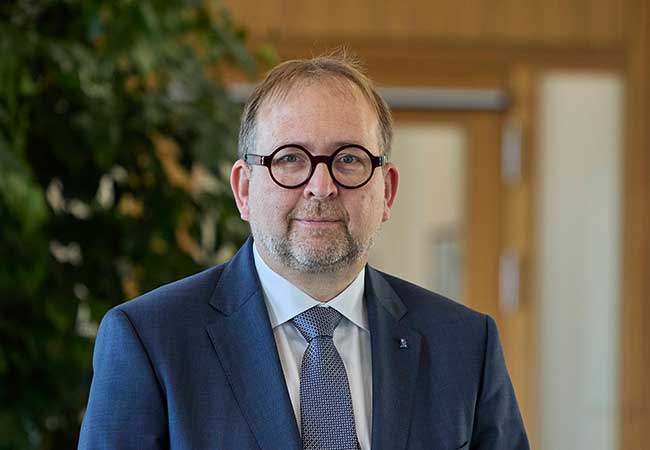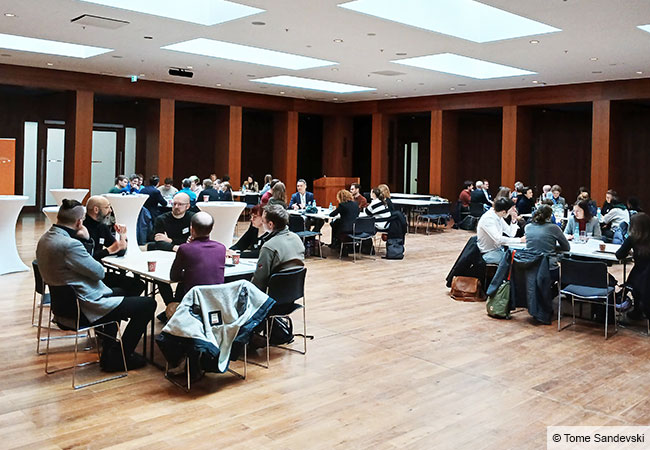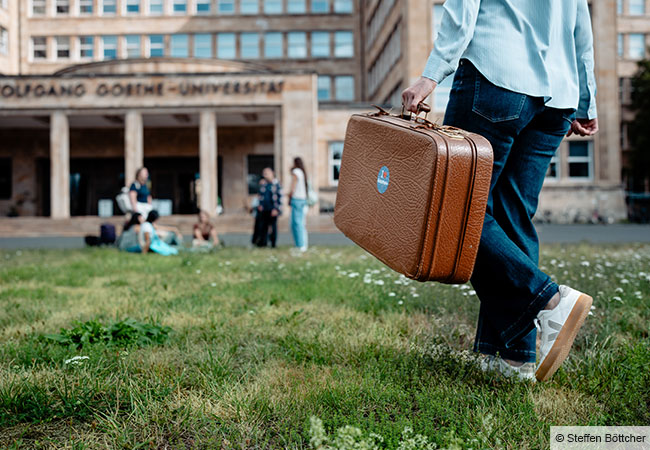The project “InterCare” intends to explore from an educational-scientific perspective how young people juggle further/higher education with being a carer. The project, which starts officially in October 2024, will receive €1.2 million in funding from the Volkswagen Foundation over a period of four years. Sociologist and gerontologist Dr. Anna Wanka, who coordinates InterCare, explains the project’s design.
UniReport: Dr. Wanka, we already know that many people look after their older relatives. How long have we known that this also applies to a growing number of young people in training as well as university students?
Anna Wanka: I started to research this topic around 2018, focusing mostly on university students looking after relatives. The subject caught my attention when a student at one of my seminars requested an extension to the exam deadlines because he had to tend to his grandparents. I tried to find out more at our teaching staff conference. After all, to date, caring for family members has not been a reason to grant “special conditions.” My colleague Moritz Hess, who works at the Hochschule für Soziale Arbeit, told me this was a huge topic at his research institution, some students of which are not only older, but also have professional experience and are generally interested in social issues. We developed the idea to launch a project on the subject together, also because we knew that research was already being carried out into young adult carers (YAC).
What is the state of research into young adult care-givers?
To find out more about precisely this subject, we began by performing a small explorative study at Goethe University Frankfurt, which was part of a “small gender project.” Our goal was to conduct qualitative interviews with student carers. The questions we had going in focused on whether they exist, if we can in fact contact them, and what exactly their realities look like. The sheer volume of responses left us breathless: Students in practically every seminar told us about their caring commitments. Our literature search of the topic yielded few sources, at least in Germany. We do know that the nationwide survey conducted among students in Germany in 2021 found that around 12 percent of them were looking after relatives. That’s more than the number of students with children. We then applied to the Volkswagen Foundation and were successful in the funding call for “Intergenerational Futures.”
Your research focuses on apprentices and students, who either look after their parents or grandparents, correct?
Yes, the care situations vary enormously. On the one hand, there are those who look after grandparents suffering from dementia or age-related restricted mobility. Others are caring for parents or parents-in-law who developed cancer in their early fifties, for example. It’s interesting to note that people who first cared for their grandparents reported that when their parents later also needed care, other relatives expected the same people who had tended to the grandparents to take on this task as well. We believe this has a concrete long-term impact on people’s lives.
What exactly does it mean to “provide care”? Does it refer to certain everyday things and acts? Are there any clear demarcations?
We decided to adopt a very broad interpretation of the concept, to allow anyone who feels this topic is about them or resonates with them to contact us. Our experience is that people tend to underestimate the care they are providing. At some stage, we will probably introduce some demarcation in our research, similar to that applied in childcare: everything that takes up more than five hours a week counts as care. The point we are making is: Almost every student provides care or support, and their studies suffer as a result. Unfortunately, the prevailing image at universities is still one of the full-time student, who does not work, has no children, and no older people to tend to.
The fact that employees might need time off not only to look after their children, but also to care for relatives is something all employers should take into consideration.
Correct. And with a view to demographic developments in the countries we are looking at, it is highly likely that the problem will only get bigger, not smaller. The shortage of skilled employees and nursing staff could mean that families have to take on a lot more. Greater life expectancy means that older people often remain in the workforce and aren’t as flexible when it comes to looking after the grandparents. This “sandwich generation” in the middle then delegates this task to younger family members. As part of the VW project, we will compare different countries, focusing on Germany, Britain and Poland. The care situation in the latter country has already deteriorated significantly because many professional nursing staff have left for the West, increasing the pressure on younger people who are either still in training or attending university and therefore physically nearby. The task of caring for relatives then falls to them.
Can you provide any more details about the study’s design?
We apply what is known as mixed methods research design in our project. We will start with a quantitative, representative survey, which will collect data in all three countries on how many people in education have caring commitments. We will also ask what this means for them, what tasks they perform, and how their education, psychological and physical wellbeing and other areas of life are impacted as a result. These findings will constitute the basis for care-dyads, consisting of interviews with both the person being cared for and the care-giver present, but also in separate conversations where certain topics that maybe can’t be expressed in a common setting – like violence, shame or feelings of guilt – can be addressed. In addition, we will also hold Delphi method-based conversations with stakeholders, that is, with those who work in drafting policies, including university and care policies, as well as with people in positions of responsibility at educational institutions and organizations. What do the experts really know about apprentices or students performing care work, what information are they lacking, and what structural changes are necessary? Thanks to our work’s participatory design, we will be working both with carers and with the people they care for from the outset. As part of so-called innovation labs, we plan to jointly develop measures for support and raising awareness. We’re also planning exhibitions and podcasts on the topic – it’s very important to us to improve its visibility.
There are also younger people who’ve finished their education but are not covered in your study.
Our initial focus is on the individuals mentioned above, which will allow us to formulate practical implications for the organization of education. But of course it’s true that the target group we’ll survey is not only involved in caring, but also works while studying. We know from studies, including from Britain, that many people discontinue their courses because they can’t combine them with their care-giving responsibilities.
Your topic definitely belongs into the wider context of a massive demographic shift.
As diversification progresses, our students will become an increasingly varied group, including in terms of their age. People who decide in their mid-30s or 40s to start a degree will naturally have older parents or grandparents than their younger fellow students. From geriatric research we also know that people who have worked in physical occupations require care earlier and for longer, which in turn means that students from non-academic households have parents who are more likely to need care.
On the other hand, can’t caring for older family members also be seen as strengthening family ties? It’s probably also a kind of anthropological constant that the younger members of a family look after the older ones.
That is definitely the case, but we want to examine the topic not only from a deficit perspective. After all, it represents an intergenerational interaction between both the carers and those being cared for and improves not only the relations between them, but soft skills, too. We recently spoke with a carer who gave up her law studies to look after her grandmother, who had dementia. She noticed that she got on really well with older people with dementia, and decided to study social work. Her dream is to establish a farm especially for dementia patients. Examples such as this do exist, although we don’t want to artificially romanticize them.
Dirk Frank asked the questions



